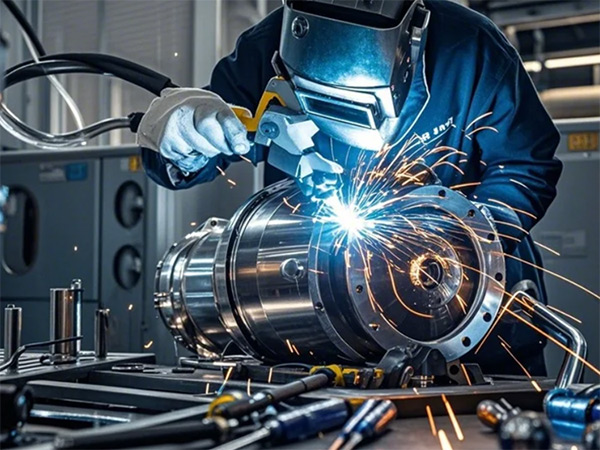Laser welding ensures safe, precise, and efficient operations in nuclear power equipment. Combined with TEYU industrial laser chillers for temperature control, it supports long-term nuclear power development and pollution prevention.
Laser Welding Technology Supports the Advancement of Nuclear Power
Nuclear power is a key component of clean energy, and as its development accelerates, so does the demand for safety and reliability. Uranium fuels nuclear power through fission reactions, generating immense energy to power turbines. However, managing nuclear pollution remains a major concern. Laser welding has emerged as a vital technology in the manufacturing and maintenance of nuclear power equipment, helping ensure safety, stability, and operational longevity.
Precision Welding for Nuclear Equipment
Laser welding offers exceptional precision, enabling the accurate connection of complex components used in nuclear reactors, steam generators, and pressurizers. These components require extremely strong and sealed welds. Laser welding uses a focused high-energy beam to create narrow, deep welds with minimal deformation, ensuring structural integrity and long-term safety.
Minimized Heat-Affected Zone
Unlike traditional welding, which often causes large heat-affected zones and degrades material properties, laser welding's high energy density and fast welding speed significantly reduce thermal impact. This helps preserve the mechanical properties of critical nuclear equipment, which is essential for reliable and safe operation under extreme conditions.
Remote and Contactless Operation
In radioactive zones of nuclear plants, conventional welding can expose operators to harmful radiation. Laser welding enables remote, contactless operation via optical systems that transmit laser beams over distances. This enhances both safety and operational efficiency by minimizing human exposure to radiation.
Rapid Repair and Maintenance
Laser welding is ideal for on-site repairs of damaged components in nuclear facilities. Its ability to quickly restore parts reduces reactor downtime, boosts power generation efficiency, and ensures continuous plant operation. This makes it an indispensable tool for nuclear plant maintenance teams.
Supporting Role of Laser Chillers
Laser welding generates substantial heat that can affect equipment performance. TEYU industrial laser chillers offer an efficient cooling solution by continuously circulating water to remove excess heat. This helps maintain optimal operating temperatures, enhances laser system stability, and prevents overheating-related failures. The laser chiller plays a key role in supporting high-performance laser welding in demanding nuclear environments.
As nuclear energy continues to grow as a clean energy source, laser welding technology will play an increasingly vital role in supporting the industry's safety, reliability, and sustainability.


We're here for you when you need us.
Please complete the form to contact us, and we'll be happy to help you.









































































































